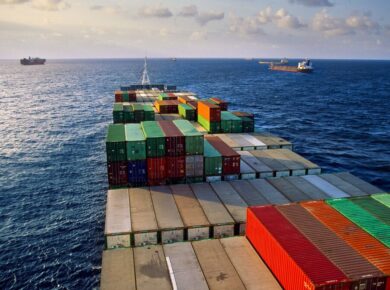Abu Dhabi’s Non-Oil Economy Surges by 12.3% in Q2, Reaches $42 Billion: SCAD

Abu Dhabi’s non-oil economy witnessed remarkable growth, surging by 12.3% in the second quarter of 2023, accompanied by a 3.5% increase in the overall gross domestic product (GDP), according to data released by the Statistics Centre — Abu Dhabi (SCAD). The emirate’s real non-oil GDP reached an impressive 154 billion dirhams ($42 billion), marking its highest level since 2014. This surge sets a record for the first quarter of this year, surpassing 146 billion dirhams.
SCAD’s statistical estimates further revealed substantial growth in several key sectors. The construction sector experienced a significant year-on-year increase of 19.1%, reaching 25.3 billion dirhams. Additionally, the financial sector demonstrated robust growth, expanding by 29.7% in the second quarter compared to the same period last year, with a total value of 18.3 billion dirhams. The manufacturing sector also showed resilience, advancing by 7% in the second quarter to reach 25 billion dirhams compared to the previous year. The real estate sector saw an increase to 9.8 billion dirhams in the second quarter, compared to 9.3 billion dirhams in the first quarter of this year. Furthermore, wholesale and retail trade activities reached their highest quarterly value since 2014, amounting to 16.7 billion dirhams. These activities contributed 5.8% to the GDP in the second quarter of 2023.
Ahmed Jasim Al-Zaabi, Chairman of the Abu Dhabi Department of Economic Development, highlighted the resilience of Abu Dhabi’s economy in the face of global economic challenges, emphasizing the success of the emirate’s diversification strategy and its adaptability to shifts in the market.
Last month, S&P Global Ratings projected that the UAE would achieve 3% economic growth in 2023, primarily driven by the non-oil sector. The analysis from the rating agency also anticipates a further expansion rate of 4% in the following year. Trevor Cullinan, a sovereign ratings analyst at the agency, cited the impressive growth of the UAE’s non-oil sector, pointing to significant advancements in services and industrial domains.
Identifying key sectors contributing to the UAE’s economic growth, Cullinan mentioned oil and gas, wholesale trade, industry, real estate, construction, and financial services. The rating agency’s report also highlighted the robust employment growth in the UAE, reaching its highest level since October 2016, even as the Purchasing Managers’ Index rose to 56.6, up from 56.1 in September.
Abu Dhabi’s economic performance reflects the region’s commitment to diversify its economy and reduce its reliance on oil revenues. The strong growth in non-oil sectors such as construction, finance, manufacturing, and real estate underscores the success of these diversification efforts. As Abu Dhabi continues to adapt to evolving global economic conditions, its ability to maintain such growth reaffirms its resilience and strategic approach to economic development.





